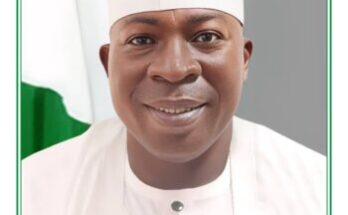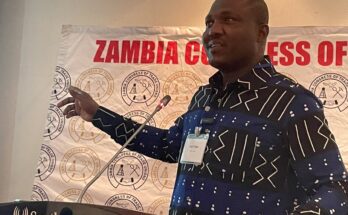In this interview with TOPE SUNDAY, Minister of Humanitarian Affairs, Disaster Management and Social Development Sadiya Umar-Farouq provides further insights into what the N-Power, a poverty alleviating programme of the federal government seeks to achieve and how such could be realised.
Honourable minister, it is not a surprise that some Nigerians don’t know this programme beyond its name. So, what really is N-Power all about?
This is a programme that has been with us for some time. N-Power is a job creation and empowerment programme instituted by the Federal Government of Nigeria through its National Social Investment Programmes under the Ministry of Humanitarian Affairs, Disaster Management and Social Development. The programme caters to, and provides opportunities for young Nigerians between the ages of 18 and 35.
Nigeria has the benefit of a young population that can catalyze a productive economy. Although current youth unemployment realities appear arduous, the scale presents an underlying opportunity. Tapping Nigeria’s youthful demographic edge through large-scale and appropriate skills development improves the prospects of economic growth and social inclusion.
With N-Power, the Federal Government will address the challenge of youth unemployment by providing a structure for relevant work skills acquisition and development while linking its core and outcomes to fixing inadequate public services and stimulating the larger economy. The programmes under N-Power will ensure that each participant learns and practices all that is necessary to create work.
Would you want to lead readers into how the programme has fared since creation?
In 2016, through N-Power, the federal government engaged and deployed 200,000 young Nigerians to public primary schools, primary healthcare centres, and agriculture development centres in all the local government areas in the country. Furthermore, in 2017, 300,000 Volunteer Corps were enlisted and deployed under the programme, bringing it to a total of 500,000 N-Power Volunteers, meeting the programme’s initial goal. This has been the largest post-tertiary engagement of human resources in Africa. This was not all.
The federal government through the non-graduate programmes, revived the apprenticeship culture by building a skilled workforce of volunteers equipped with life-long skills. Volunteers were trained in automobile repair, hospitality, carpentry and joinery, hospitality, plumbing and pipefitting, 2D/3D animation, scriptwriting, tech software, tech hardware, voice acting, video production, electrical installation, masonry and tiling.
So, what would you say are the set goals ?
Well, the goals are very not much numerically but broad in scope and implementation. Precisely, the programme seeks to intervene and directly improve the livelihood of a critical mass of young unemployed Nigerians. Also, it intends developing a qualitative system for the transfer of employability, entrepreneurial and technical skills, creating an ecosystem of solutions for ailing public services and government diversification policies and above all to develop and enhance Nigeria’s knowledge economy.
So, when I said it’s broad in scope and implementation, by that I meant the various categories that would be touched when executing the programme. In other words, there are what we call the existing categories.
For instance we have the N-Power Agro. In this regard, volunteers will provide advisory services to farmers across the country. They will disseminate the knowledge that has been aggregated by the Federal Ministry of Agriculture and Rural Development in the area of extension services. They will also gather data of Nigeria’s agriculture assets. This, it should be stated is open to both graduates and non-graduates.
Similarly, there is another category of N-Power Teach. Under this category, volunteers will help improve basic education delivery in Nigeria. N-Power Teach Volunteers will be deployed as teacher assistants in primary schools around Nigeria. They will not replace the current teachers, but will work as support teachers across Nigeria, assisting with teaching, school management and other functions within the schools. Where possible, they will also assist in taking basic education to children in marginalized communities. It is open to graduates only.
Then we have N-Power Health which like the N-Power Teach is open to only graduates. In this case, volunteers will help improve and promote preventive healthcare in their communities to vulnerable members of the society, including pregnant women and children and to families and individuals.
And lastly but not the least is N-Power Build, Tech and Creative, which is open to both graduates and non-graduates. The volunteers under this category will will receive extensive training to help develop and expand their respective skillset. This will help foster innovation and creativity among the youths, while ensuring that they can turn their skills into marketable products.
What’s the duration?
Yes, that’s a very critical one which I must emphasise. Unlike the former programme which ran for a duration of 2 years before exit, the new N-Power programme will run for 6 months–one year depending on the category. N-Agro, N-Build, N-Creative and N-Tech will run for 6 months (with two batches a year), the N-Teach and N-Health part of the programme will run for 1 year. For the 6-month programmes, 3 months will be used for training beneficiaries, while the other 3 months will be used for mentorship and attachment to partners and stakeholders.
What number is allocated each category? That’s talking of the number of beneficiaries .
Again, it needs to be stressed here that for efficiency, the federal government decided to allot specific numbers to the categories. Once the portal opens, only400,000 of the most qualified and promising candidates will be selected to participate in the programme.
The list runs thus: 200,000 beneficiaries will be admitted into the N-Power Agro programme, 80,000 will be admitted into the N-Power Teach Programme, 40,000 will be admitted into the N-Health Programme, and 80,000 will be admitted into the N-Power Build, Creative and Tech categories.
The N-Power application portal will open at 11:30 pm on June 12th 2020 to all eligible Nigerians. Applicants are to note that the application process is completely free and there is no application fee. Applicants are requested to read and understand all relevant information prior to applying.
Applicants should note the following steps:
•Visit www.npower.gov.ng. Read up about the different N-Power categories so that you understand the category that suits you best.
• Before you go on to apply, ensure you have a printout or accurate details of your Bank Verification Number or BVN and a recent passport photograph.
• Then click on “Apply for N-Power Volunteer Corps”.
• Once you get on the application portal, you will be required to read the terms and conditions of the N-Power Programme and accept that all the information you will provide must be truthful and accurate.
• Fill in your 11-digit BVN; then fill in your surname, first name, and middle name in identical terms to your BVN information; followed by details of your active bank account;
• If your BVN details are inaccurate, you will not be permitted to go past this interface. If the BVN details are accurate, you will be allowed to proceed to the application portal to fill in all the personal information required and your academic qualification. You will receive a unique N-Power identification number;
• Ensure to provide your own telephone number and email so that you can be reached directly;
• You will also need to upload your passport photograph in either JPEG or PNG files in no more than 25 kilo bytes.
• Before you complete your application, you will be assessed on your knowledge of grammar, general knowledge, and basic numerical concepts.
So, let me say on the final note that Nigerians should give us the necessary support to allow this programme work because the success will greatly reduce the rate of criminality and other social vices among the youth.




